- Home
- Dan Simmons
A Winter Haunting Page 9
A Winter Haunting Read online
Page 9
But Duane almost never joined them on those outings. Dale had always thought that it was because the fat boy did not want to work at the digging, but Duane worked harder on his farm than any of the city kids, so one summer day Dale had asked him why he didn’t want to find the Bootleggers’ Cave with them.
“You’re looking in the wrong place,” Duane had said.
Dale had ridden his bike out to Duane’s farm alone—Lawrence was in bed with the flu—and Duane’s Old Man had sent Dale up to one of the high, hot lofts in the barn, where his genius friend was busy writing what looked like hieroglyphics on the barn wall. It turned out that they were hieroglyphics—Duane had decided to become religious and worship some Egyptian god or goddess—but Dale hadn’t been interested in that right then, even though Duane had accumulated quite a treasure trove of animal and bird skulls at his makeshift altar in the loft. Dale wanted to know about the Bootleggers’ Cave.
“What do you mean, we’re looking in the wrong place?”
“And for the wrong thing,” continued Duane, dabbing white paint on his row of bird-and-eyeball-and-wavy-line hieroglyphics.
“What do you mean?”
“The bootleggers didn’t have a cave, just one of these farmhouses with an escape tunnel they dug. The tunnel’s not even that long.”
“How do you know?”
“They used our house,” said Duane.
“You’ve seen this tunnel?”
“I haven’t been in it.”
“Where would we dig for it?”
“You don’t have to dig. It runs right out of the basement of The Jolly Corner.”
“And are there cars and stuff in it? Like dead guys?”
Dale had laughed and rubbed his nose with the paintbrush. “I don’t think so. More like rats and sewage. I doubt if the gangsters dug a very good tunnel. It must go right by where the old outhouse used to be.”
Dale had wrinkled his nose. “That isn’t the Bootleggers’ Cave. The real cave is huge—with cars in it and stuff—and lots of whiskey. We’re pretty sure it’s down by the creek on Uncle Henry and Aunt Lena’s farm.”
Duane had shrugged, and that had been the end of it. Dale had never asked him about it again.
Now, more than forty years later, Dale went to sleep smiling at the memory. He did not hear the scratching that had replaced the howl of the wind—a scratching coming from the darkness behind the furnace where the opening to the coal bin was.
TEN
* * *
DURING the next few weeks at the farm—the first three weeks of November—Dale began to enjoy himself. It was a brief respite before the nightmare.
It turned out that almost all of the disadvantages of the place and situation worked to his advantage in one way or another. The lousy weather—the warm fall days lasted only a day or two more before the snow and gray skies returned—kept him inside and drove him deeper into himself in that indefinable way so important to writers. And writing was what this so-called sabbatical was all about. Dale was using my old notebooks to retrieve the sense of being eleven years old in the Elm Haven of the summer of 1960. He had never clearly expressed to himself his goal of writing a book about that summer—or even of finally recapturing clear memories of that time—but this is what he proceeded to do in the weeks after his arrival at The Jolly Corner.
At first, the lack of connection there—no telephone, no Internet, no television—almost gave him a sense of vertigo. Despite his previous discipline as a writer and academic, he was still used to being connected. But as the days turned into weeks, the silence, especially the mental silence that comes from not being hammered by e-mail and phone calls, turned first into a pleasant advantage and then into a necessity. He thought of making the occasional call when in Oak Hill or Elm Haven—to his agent, to his daughters—but he did not need to make the phone calls and soon found reason to forget them.
He found a newspaper kiosk in Elm Haven and occasionally bought the Peoria Journal Star, ostensibly for national news, although it was the provincial Peoria and rural news that really caught his attention. More frequently, often after writing for hours, he would come down into the basement where I used to sleep and listen to one of the radios there—relaxing on my bed and listening to distant St. Louis’s one good jazz station much in the way that I used to spend hot summer nights listening to Cardinals and Cubs games, the voices rising and falling across the static of the breathing earth’s ionosphere, the sense of distance and space implicit in the ambiguities of the reception.
Most of the time, however, Dale Stewart celebrated his isolation. The weirdness of the house, the phantom light on the sealed-off second floor, and the encounters with skinheads and a former bully bemused him more than concerned him. It gave a flavor of strangeness without the harshness of real threat. It kept him inward-turned and progress-aimed.
He began to take walks. After decades living in the American West where the view is everything, where the scope and scale of nature is all but overwhelming, Dale found great satisfaction in finding a modest view from the small hill a quarter of a mile behind the barn—the flat area where I had buried my dog, Wittgenstein, more than forty years earlier, although Dale did not know that—and then following the frozen creek south another three-quarters of a mile to the Johnsons’ small woods. The gray skies and flat vistas seemed to make the scale of nature smaller here, more accessible, more observable, and Dale soon began to walk an hour or two each day, despite the harsh weather. Sometimes, heading back up the creek toward the farm or cutting across the frozen fields, Dale could not even see the farmhouse until the last few hundred yards, the barn appearing first, looming out of the snow and gloom, then the rusted oval of the fueling station gas tank hanging in its iron girders, then the washed-out, pale box of the house solidifying in the flat light.
He would make himself lunch—usually soup and French bread and some cheese—and then return to my Old Man’s study with its rolltop desk, bookcases, sleigh bed, and decent light. There he’d work, typing on his ThinkPad for several more hours, often printing out the day’s work on the compact HP Laserjet printer he’d brought along so that he could edit and revise the hard copy in the evening or the next morning. Then dinner—usually something more substantial than soup and bread—and another hour or two of writing before spending the evening reading or going to the basement to listen to jazz through the console radio’s scratchy but wonderful speaker.
Dale was writing easily, but not well. Both his academic background and commercial writing experience had trained him to start from the outside in: that is, to structure the tale, research the characters and settings, and then write inward, the way a whittler carves a shape from a stick. I was just a kid when I died, but I had already discovered one important truth about writing—to do it well, one has to work from the inside out. That is, there has to be a quiet but unshakable center to the tale, whether in the core of the characters or the story or, preferably, in both, and everything must spiral outward from that point. Dale was still whittling away, trying not to cut across the grain and hoping to find honest shapes in the wood.
His sense of place in the unformed novel was very strong. What, after all, is more real to us than the geography of our childhoods? Occasionally he would get in the Land Cruiser and drive slowly through the streets of Elm Haven to refresh himself on some item of geography, but in truth he wasn’t writing about the sad and battered Elm Haven of this shoddy new century. Dale was living in the summer of 1960 now, and when he drove the streets of the little town he was looking at structures and people who were no longer there, who would never be there again.
Dale had no guilt at borrowing my own journals of jottings and vignettes and character scribbles to capture the kids of the summer of 1960—including himself. After my death, Dale had promised himself that he would become the writer that his friend Duane had wanted to be, so it seemed natural that he would build on my old notes and observations to write this particular book.
B
ut they were my notes and observations, not Dale’s. He still had not discovered his own key to the door opening on that largely forgotten summer. So when he began the early-chapter descriptions of our eleven-year-old friends—Mike O’Rourke, Kevin Grumbacher, Jim Harlen, Donna Lou Perry, Cordie Cooke, and the others—they were my perceptions and misperceptions, not Dale’s. Not even the images of young Dale himself and of his little brother, Lawrence, came completely from Dale. Perhaps he was afraid to go back to those memories all by himself.
The black dog returned nineteen days after he arrived.
It was late afternoon and Dale was taking his favorite walk, heading west to the flat rise, following the creek south to the woods on Mr. Johnson’s farm, then cutting northeast along a gully, coming out at Calvary Cemetery on County Road 6. Then it was less than a mile along the gravel road to the driveway back to the farmhouse.
This afternoon, he had just reached the woods and was preparing to cross the creek before hiking east when he saw the dog twenty yards or so behind him, on the same side of the creek cut. When Dale stopped, the dog stopped.
For a moment he was sure that he had solved the tiny mystery; if the dog was here in the Johnsons’ woods, then the dog must belong to Mr. Johnson. But then Dale realized that the hound had followed him from Duane’s farm.
Dale took a few steps toward the dog. The small black dog retreated a few steps, then turned and waited. Dale stood looking at it, wishing that he’d brought his binoculars.
The black dog appeared a bit larger than he remembered it, but the rest of his description to Sandy Whittaker still applied: a relatively small dog, all black except for a patch of pink on its flattened muzzle, floppy ears, no tail visible, and barrel-chested. He tried to remember the breed that Sandy had mentioned—a French bulldog?
The dog waited for Dale to begin walking again before it followed. Dale slid down the steep creek bank and jumped the narrow, half-frozen stream. The dog picked its way across twenty yards to the north and scrambled up the steep slope.
Dale followed his usual route back to County 6, following old cow paths along the rim of a narrow ridge that ran between two gullies. The stream in the south gully had been named Corpse Creek by Dale and his buddies forty-five years earlier. There had been a three-foot-deep pool on the east side of the gravel road where the creek ran through a tall culvert—a favorite hiding place for the boys—and frequently, dead animals hit by speeding cars on County 6 had ended up in the pool. Thus, Corpse Creek.
The black dog stayed twenty yards back, picking its way across frozen grass in that tenderfooted way that some dogs have outdoors. At one point, Dale stopped and threw a rock in the dog’s general direction—not trying to hit it, merely trying to get it to go away. The black dog sat on its haunches and stared at him.
Then the dog licked its muzzle and showed its teeth—not, Dale thought, in any sort of snarl, merely in a doggy grin.
Dale felt a chill of unease flow through him. He knew it must be a trick of the overcast day and distance, but for an instance it looked as if the black dog’s teeth were wrong.
It looked as if the dog had human teeth.
Dale shook his head, angry at himself for generating the image, and when he looked back, the dog was no longer showing any teeth. He climbed over Johnson’s wire fence at a sturdy fence post and walked out onto the asphalt of County 6 in front of the hilltop cemetery. It was a cold day, and windy. Usually the cemetery was empty of visitors during Dale’s weekday afternoon walks, but he realized with a start that this day someone was standing thirty or forty yards into the graveyard. The lone figure was male and oddly dressed—wearing what appeared to be high leather boots, khaki wool as in old military uniforms, and a Boy Scout–type broad-brimmed hat. An old veteran? thought Dale. It was impossible to tell the age of the man at this distance, but the slimness and suppleness of his silhouette suggested someone younger.
There was no car in the grass parking berm along the black iron fence.
The man in the cemetery looked up from the headstone he was contemplating and stared in Dale’s direction. Dale waved. He wondered if it was someone local—perhaps the male half of the young couple who had bought Uncle Henry and Aunt Lena’s farm—or someone else who lived within walking distance of the cemetery. It would be nice to meet someone normal around Elm Haven.
The man stared but did not wave back.
Dale mentally shrugged and began his walk north down the steep incline, making sure, as always, that no car or pickup was roaring down behind him on the narrow asphalt road. When he thought to check, there was no sign of the black dog.
It was an hour later, after he’d finished some tomato soup and returned to his computer in the study, that he realized that someone had been in the house.
The IBM ThinkPad had been left on. The last sentence Dale had typed was still on the screen—
The summer lies ahead like a great banquet and the days are filled with rich, slow time in which to enjoy each course.
Dale had thought about that sentence during his walk and decided that the simile might be too flowery, but it was not the possible excess in the writing that concerned him now. Below his sentence had been typed—
gabbleretchetsyethwishthounds
hehaefdehundeshaefod&hisloccaswaeronofer
gemetside&hiseaganscinonswaleohteswamorgensteorra
&histethwaeronswascearpeswaeoforestexas
He didn’t pay any attention to the gibberish yet. He was more interested in who had written it. Dale reached under the sleigh bed in the study and pulled out the new baseball bat he’d put there. The crowbar was heavier, but it was in the kitchen cupboard.
Hefting the bat, walking as lightly as he could, Dale went down the hall to the kitchen, through the kitchen and out onto the side stoop. It had begun to rain again, but it was light enough for him to see the muddy turnaround area. It had been wet and muddy before he left. The only car tracks led to his parked Land Cruiser. The only footprints were the ones he had left coming and going.
Not satisfied, Dale went back into the house. He traded the bat for the crowbar, locked the door, and went from room to room, switching on lights as he went. He checked behind furniture and drapes and under the bed. He opened closets. He went down the basement stairs and checked behind the furnace and under Duane’s old brass bed. He checked the empty coal bin.
Upstairs again, he rechecked all of the ground-floor rooms. Then he went up the stairs to the second floor.
The heavy plastic remained stapled firmly in place. The second-floor hallway was dim behind the yellowed sheets of construction plastic.
Dale checked everything again. Nothing. No one. The house was so empty and silent that the sound of the furnace kicking on made him jump and hold the crowbar at port arms.
He retrieved the baseball bat and went back to the study, hoping that the words would be gone from his screen. They were still there.
Dale sighed, sat in the old swivel chair, and printed out the page.
As he saw it, there were only two possibilities—either someone had been in the house while he was walking, or he had typed these lines without being conscious of it. Either possibility made him slightly ill.
He looked at the first line—gabbleretchetsyethwishthounds. The word “hounds” leaped out of the line. Whoever had typed this mess had not taken time to hit the space bar.
Dale went through the manuscript with his blue pen, setting diagonal slashes where he thought the breaks should be. The message became—
gabble retchets yeth wisht hounds
he haefde hundes haefod & his loccas waeron
ofer gemet side & his eagan scinon swa leohte
swa morgensteorra & his teth waeron swa scearpe
swa eofores texas
Unfortunately, most of it made sense to the English professor.
Dale Stewart’s expertise was in twentieth-century literature, but he had taught his share of Chaucer and enjoyed his seminars on Beowulf. This Old English was
closer to Beowulf’s. “Gabble retchets” rang vague bells, but did not immediately translate. He didn’t believe that was Old English—Welsh, perhaps. “Yeth” meant “heath,” so the end of the first line meant something like “heath or wisht hounds.” He would have to check references for the “wisht.”
The rest of the message was straight old English. “He haefde hundes haefod”—“he had the head of a hound.”
Dale lowered the paper and rubbed his cheek, hearing the stubble there scrape. His hand was shaking ever so slightly.
“& his loccas waeron ofer gemet side”—“and his locks were extremely long.”
Dale smiled. When he had first seen the typing, he’d been afraid that Derek and the other skinheads, or even Sheriff C.J. Congden, had sneaked into the place to spook him. He felt he could safely rule them out. He doubted if any of the locals he’d met so far were literate in Old English. Careful, Dale old boy, he warned himself, intellectual pride goeth before a fall.
“& his eagan scinon swa leohte swa morgensteorra”—“and his eyes shone as bright as the morning star.” Someone with the head of a hound, long locks, and blazing eyes. Lovely.
“& his teth waeron swa scearpe swa eofores texas.” Texas. Dale wished it was a note about Texas. This line translated as “. . . and his teeth were as sharp as a boar’s tusks.” Texas.
Dale deleted the lines of Old English and tried to get back to his novel, but somehow he could not transport himself back to the rich summer vacation of 1960. After a while he gave up, pulled a cold beer from the fridge, grabbed his dogeared copy of Norton’s Anthology, found the Beowulf section, and went down to the basement where it was brighter and warmer.

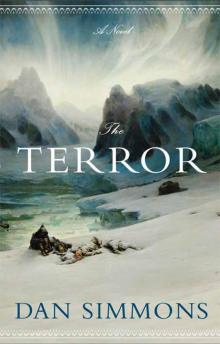 The Terror
The Terror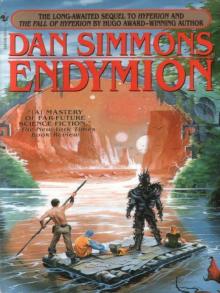 Endymion
Endymion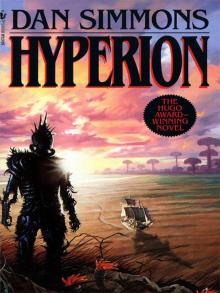 Hyperion
Hyperion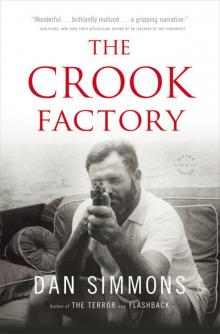 The Crook Factory
The Crook Factory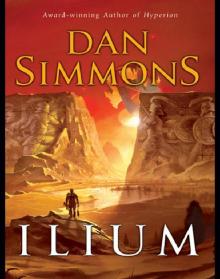 Ilium
Ilium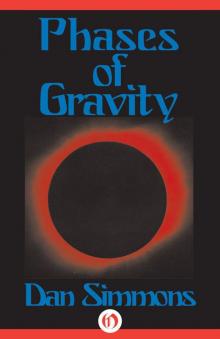 Phases of Gravity
Phases of Gravity Hardcase
Hardcase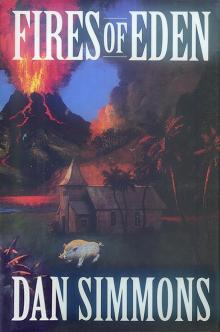 Fires of Eden
Fires of Eden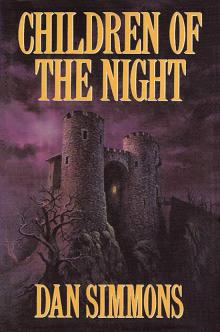 Children of the Night
Children of the Night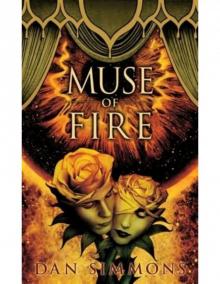 Muse of Fire
Muse of Fire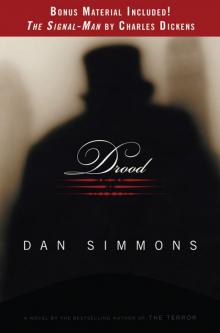 Drood
Drood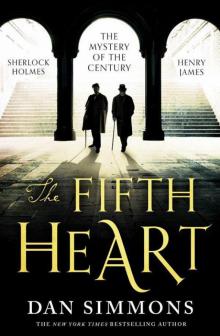 The Fifth Heart
The Fifth Heart Carrion Comfort
Carrion Comfort The Hollow Man
The Hollow Man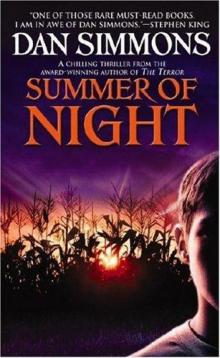 Summer of Night
Summer of Night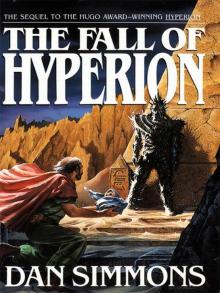 The Fall of Hyperion
The Fall of Hyperion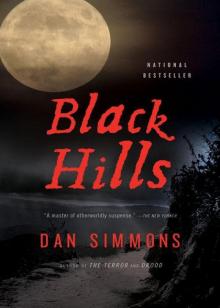 Black Hills
Black Hills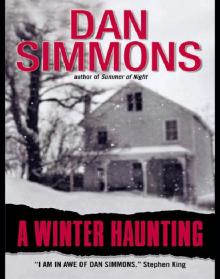 A Winter Haunting
A Winter Haunting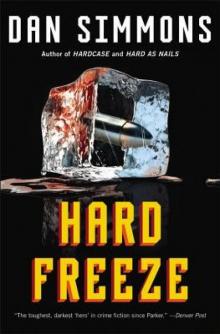 Hard Freeze
Hard Freeze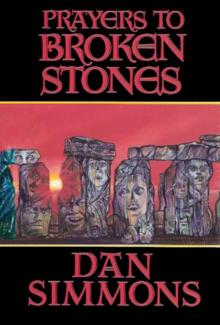 Prayers to Broken Stones
Prayers to Broken Stones Hard as Nails
Hard as Nails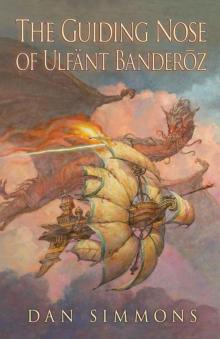 The Guiding Nose of Ulfant Banderoz
The Guiding Nose of Ulfant Banderoz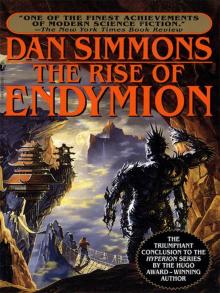 The Rise of Endymion
The Rise of Endymion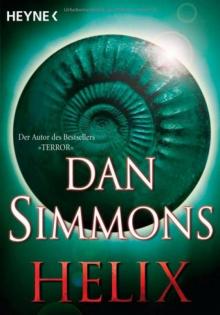 Orphans of the Helix
Orphans of the Helix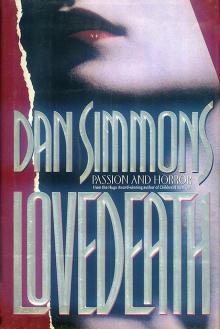 Lovedeath
Lovedeath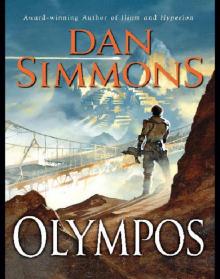 Olympos
Olympos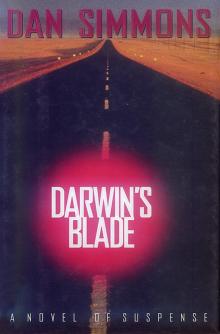 Darwin's Blade
Darwin's Blade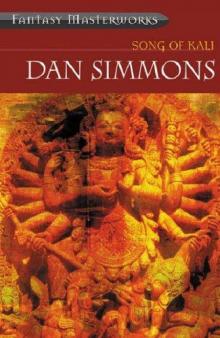 Song of Kali
Song of Kali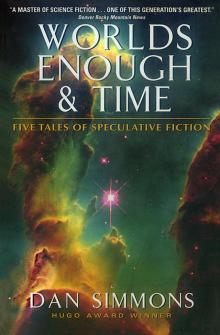 Worlds Enough & Time: Five Tales of Speculative Fiction
Worlds Enough & Time: Five Tales of Speculative Fiction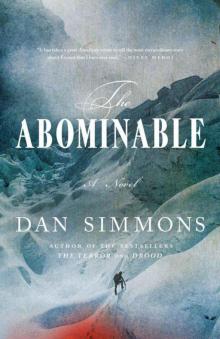 The Abominable
The Abominable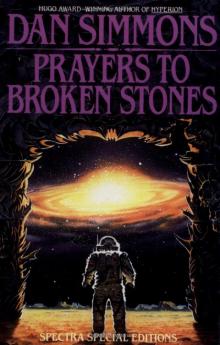 The Death of the Centaur
The Death of the Centaur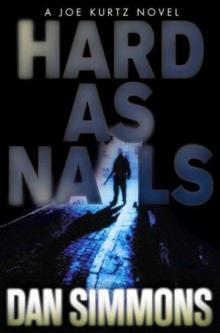 Hard as Nails jk-3
Hard as Nails jk-3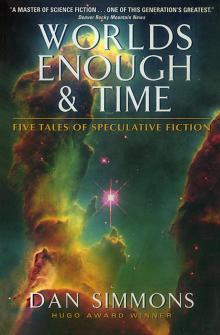 Worlds Enough & Time
Worlds Enough & Time Joe Kurtz Omnibus
Joe Kurtz Omnibus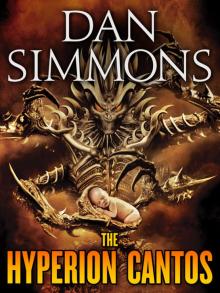 The Hyperion Cantos 4-Book Bundle
The Hyperion Cantos 4-Book Bundle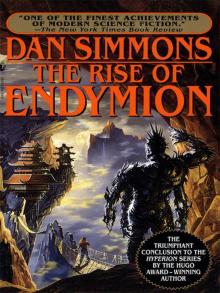 Rise of Endymion
Rise of Endymion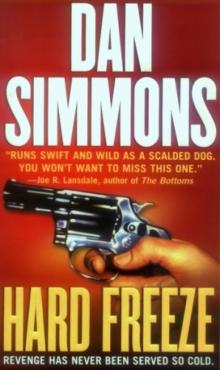 Hard Freeze jk-2
Hard Freeze jk-2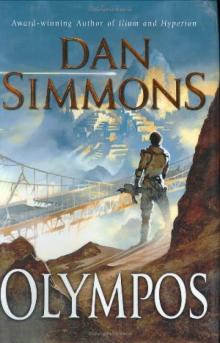 Olympos t-2
Olympos t-2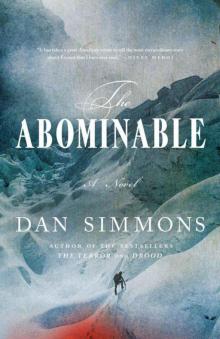 The Abominable: A Novel
The Abominable: A Novel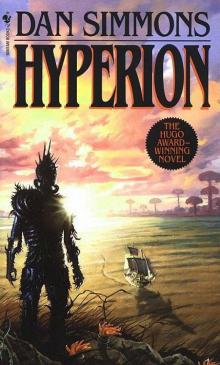 Hyperion h-1
Hyperion h-1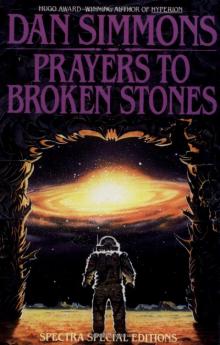 Remembering Siri
Remembering Siri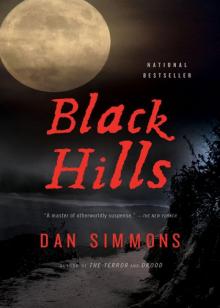 Black Hills: A Novel
Black Hills: A Novel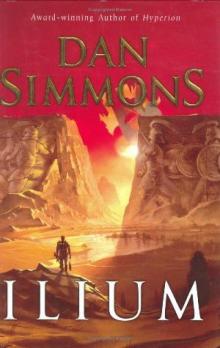 Ilium t-1
Ilium t-1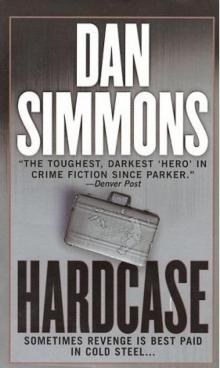 Hardcase jk-1
Hardcase jk-1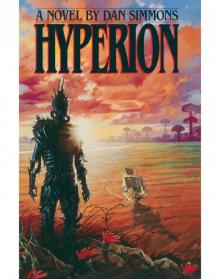 Hyperion 01 - Hyperion
Hyperion 01 - Hyperion